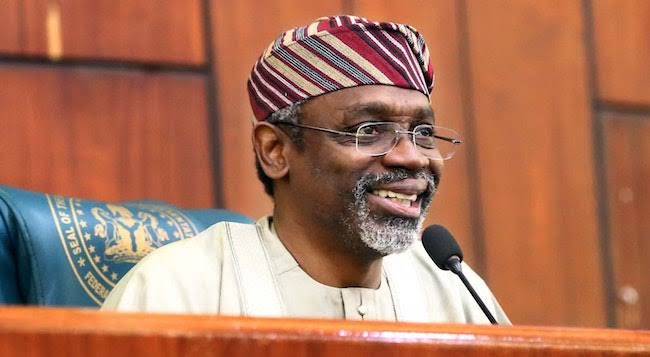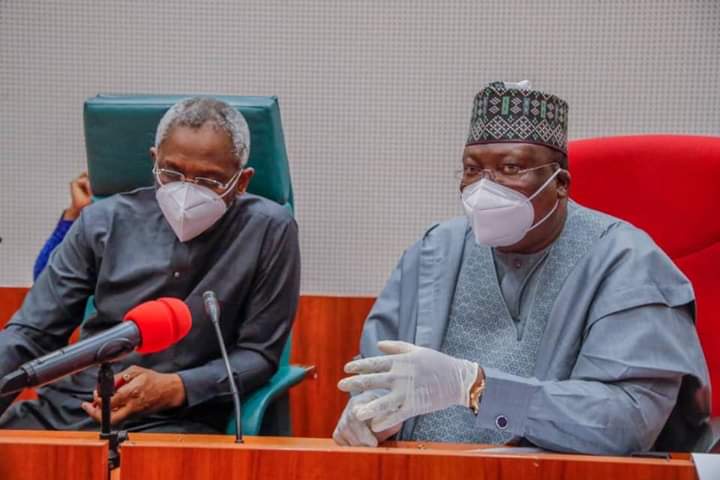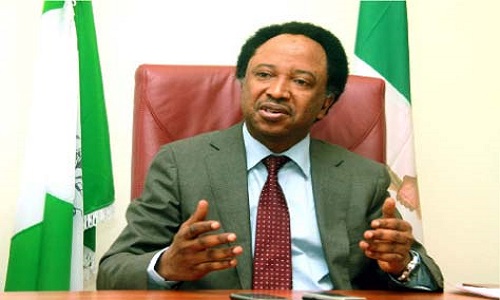The House of Representatives of the 9th Assembly bade farewell to its members during a valedictory session on Wednesday, 7th June, marking the end of its four-year term, while the Senate President, Ahmad Lawan, announced the rescheduling of the Senate’s valedictory session from Thursday, June 8 to Saturday, June 10.
Speaker of the 9th Assembly, Femi Gbajabiamila, took the opportunity to present the scorecard of the House, highlighting the achievements and challenges encountered over the last four years.
During the session, Speaker Gbajabiamila commended the House for its contributions to various sectors and its positive impact on the lives of Nigerians.
Notable achievements included implementing a January to December budget cycle, which brought stability to the budgetary process and enhanced economic certainty. The House also reformed oversight processes to promote better collaboration between government arms and increase transparency in budget expenditure.
The passage of critical legislation, such as the Petroleum Industry Act (PIA) and the Police Act, was also highlighted as significant accomplishments. While the PIA aimed to revitalize the oil and gas sector and create a functional regulatory framework, while the Police Act sought to improve relations between law enforcement and citizens, ensuring accountability and protecting citizens’ rights.
“We passed the Police Act to change the nature of relations between the police and citizens in our country and ensure that police officers who fall short of their responsibilities can be quickly held accountable.
“I sincerely hope that the work of police reform will continue in the House of Representatives until we achieve a system of policing that meets our nation’s needs and reflects the best of us” Gbajabiamila said in his valedictory speech.
While the 9th Assembly achieved significant legislative milestones in its four-year tenure, TheNewsGuru.com (TNG) reports that out of 2,232 bills considered, the Assembly concluded with a substantial 1,197 backlog of bills awaiting second reading, indicating a potential delay in addressing critical issues and implementing necessary reforms.
With another 308 bills pending in committees and a total of 510 bills passed over the course of its four-year lifespan, the efficiency of the 9th Assembly in moving legislation forward has come under scrutiny as the backlog suggests that further measures could have been taken to strengthen the committee structure, improve coordination, and facilitate timely reports and recommendations.
There were also concerns about the quality of some legislative outputs despite the number of bills passed. Critics argued that some legislation lacked the necessary depth, clarity, and attention to detail, raising doubts about the effectiveness and long-term impact of certain laws enacted by the assembly.
Additionally, despite the constitutional provision for affirmative action and calls for increased female representation, the 9th Assembly fell short of achieving gender parity. Constitutional amendments aimed at removing barriers to women’s full participation in politics and governance did not materialize, as admitted by the former speaker.
“To succeed in our shared ambition of building a prosperous and peaceful country, we must do everything within our power to ensure that our daughters and those yet to be born can grow up in a more open, more equal society than their mothers did.
“Unfortunately, we did not succeed in removing some of the constitutional barriers that have long stood in the way of women’s full and unhindered participation in the politics, governance and economy of our nation…I hope the 10th House of Representatives will take up the mantle and do better than we did,” Gbajabiamila said.
Although the assembly made strides in parliamentary diplomacy and defending the rights of Nigerians abroad, ongoing challenges related to security and emigration were also not fully resolved.
“Too many of our young people have lost faith entirely and are choosing in droves to seek their fortunes and their futures in other lands. We are losing some of our best and brightest, and if we don’t act now, the consequences of this loss will shortly become painfully evident,” the former speaker added.
Ironically, however, the lawmaker who represented Birniwa/Guri/Kirikasamma constituency in the 9th National Assembly, Abubakar Fulata described the 9th Assembly as the “most productive of all Assemblies in the history of the National Assembly”.
By acknowledging these shortcomings of its predecessor, the incoming 10th Assembly can build upon the achievements recorded and strive for more effective and impactful governance, ultimately serving the best interests of the Nigerian people.
Gbajabiamila will, however, on 14th June 2023 officially take office as the newly appointed Chief of Staff to President Bola Ahmed Tinubu.


